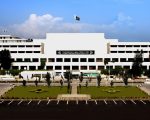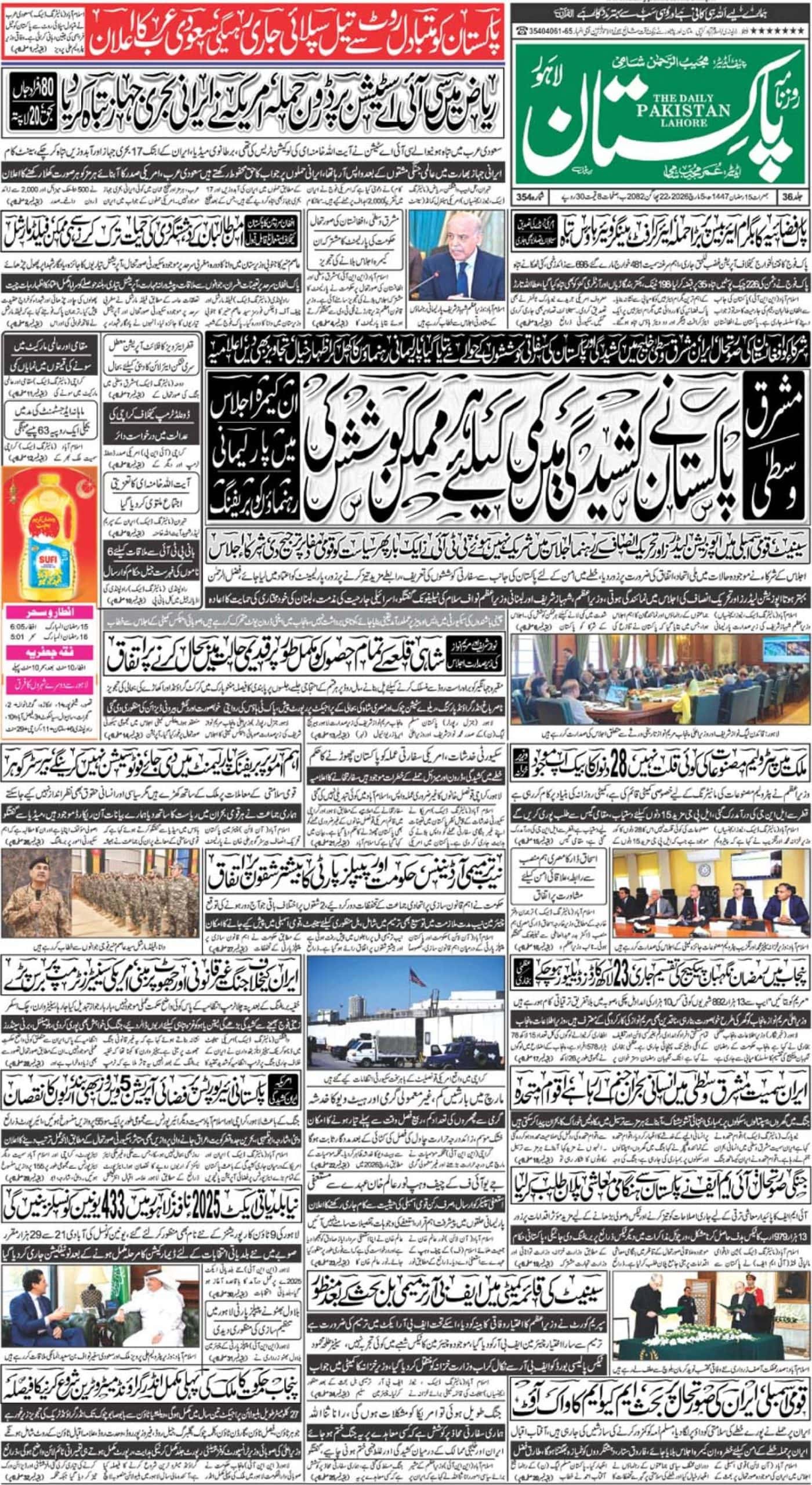To read Shahid Hamid’s ‘Treasured Memories’ for the first time is to be immediately submerged in a world in which language and character, along with the echo and rhythm of a time long gone, has been recaptured quietly with astonishing clarity, irony, and foreshadowing. While writing a column for The Observer, Oscar Wilde noted that a love letter is as much about the person it is addressed to as it is about the person writing it. Shahid Hamid’s ‘Treasured Memories’ reads like a love letter to a life well-lived, a family much loved, and a country well served since it is as much a sociopolitical recap of his country’s past years as much as it is an insight into the personal life of one of the most charismatic and successful Pakistani men that I have had the good fortune of knowing as a friend for almost half a century.
Treasured Memories is many things: to begin with – it is a very handsome book but before I talk to you about its merits let me begin with what it is not. That is to say, it must not be mistaken for an autobiography as I would rather see it as a slice carved out of a larger picture. The autobiography as a genre can be regarded as a narrative, composed from personal experience and memory of an account of one’s life, bringing into knowledge those parts which the autobiographer believes are noteworthy, in a manner which he can recollect or aspires to recollect them.
Most autobiographies are, therefore, inspired by a creative impulse to select only those events and experiences in the writer’s life that help build up an integrated pattern. But the autobiography is also just like the photograph as it is a means of identity construction. The only difference being that the autobiography explores the relationship between identity and narrativity, while the photograph leans towards identity and a specific visuality. One of the most notable literary critics of the 20th C Northrop Frye opines that the autobiography is characterized by its conscious effort to create a protagonist. Though there appears no apparent reason why that should be cause for alarm, one does have to guard against a self-serving motive which is why I personally prefer the descriptive phrase ‘life writing’ rather than the popularly accepted concept of the autobiography especially so for Shahid’s book.
‘Memory is a great artist,’ claimed the great autobiographical experimenter Andre Malraux further opening up a debate on whether life writing can be both artful while remaining simultaneously historically accurate.
The history of life writing is actually a reflective history of selfhood since it works in tandem with the rise of individualism itself. The form called biography, by contrast is the interpretation of someone else’s life and is an ancient practice rooting itself in either religious and/or royal accounts which are an inescapable part of the history of any civilization. The autobiography, on the other hand, is generally perceived as arising in modernizing societies where the individual’s rather than the religious or royal perspective gains cultural value, linking itself to profound questions concerning self-awareness, self-analysis, and performance.
The romantic period responded to this by predictably crystallizing this relationship with the self and linked life writing to an emerging new cult of the author. In the contemporary context of modern culture, the life narrative form appears to have tilted more towards autobiographical rather than a biographical narrative, almost like a self-styled confessional. Muddying the waters still further is the realization that in the early 21st C; the memoir as a genre has chosen to focus on both i.e. the other as well as oneself; which is partly due to the modern taste for stories of close relationships in which a ‘tell-all’ kind of narrative has gained immense popularity.
As a result, the literary autobiography in the early 21st century, therefore, appears to cater to the taste for stories of intimate, behind the scene relationships in which elements of biography and autobiography both come together. This genre of writing has created a fascinating new form of study for critics who have become interested in the inevitable dependency of one’s own story on another’s, which in itself is an ethically troubling subject but of tremendous aesthetic, intellectual, and political fascination. Such “auto/biographies” negotiate precariously since they emphasize an important basic element of the life narrative: i.e. fulfilling the reader’s expectation that whatever has been written is true.
One of the most notable literary critics of the 20th C Northrop Frye opines that the autobiography is characterized by its conscious effort to create a protagonist. Like the photograph, the autobiography is a means of identity construction and with Shahid’s portrait on the book cover, we have both. I am delighted by the fact that Shahid traverses the terrain between the ontological gap of identity and temporality with great finesse in a narration that is neither wayward nor loose, but crisp and forthright- almost conversational. His voice remains a matter of fact, his gaze intimates as well as penetrating; resulting in a narrative replete with details of places, people, and issues that come alive. Especially noteworthy is the fact that in his reflections on the personal history of his family as well as a more impersonal national history, Shahid is careful to dismantle any enhancement of his own personae as he treats accounts of state visits on the one hand and family holidays on the other, deftly and with an admirable egalitarianism. I am, therefore, happy to conclude that in the pages of Treasured Memories, the protagonist’s voice is clearly his own and more importantly, that there are people still living who can vouch for the veracity of his writings.
Apart from that, the book is many things and offers a wide variety of fields for further inquiry and debate; to begin with, the book is a very handsome one and promises a good read – which it is – the narrative voice is Shahid’s through and through- direct, forceful, precise but always with a hint of laughter lurking between the lines– very much like what I presume his arguments in court or his briefs in the highest echelons of power must have been. As it reads – and I have to admit that I raced through it in two sittings – it struck me as a mélange of facts both public and private and to my mind, reads almost like two books in one:- i.e. about matters of grave national importance, on the one hand, offset by an anecdotal history of a blessed life for which I have to congratulate Shahid once again.
But what struck me most about ‘Treasured Memories’ however, was not so much the breathless pace at which Shahid describes and details matters of monumental national importance such as the dismissal of the Benazir Bhutto government by President Farooq Leghari to name but one incident; but the realization that Shahid has played such a pivotal yet such a discreet role in drafting documents, parlaying with former and present rulers, doing a balancing act viz a viz the men in khaki while paying back to the country that has given him so much with his quiet philanthropy.
History buff that I am, it is impossible not to draw a parallel between the events Shahid recounts and the secret of Queen Elizabeth’s I’s successful 45-year reign- The Virgin Queen as she was known as an extraordinary monarch, who read a lot – almost three hours a day, but more importantly, read people and most important – she kept her mouth shut ascribing to the motto video et tacio. By knowing all that there was to know and saying little, Elizabeth laid the foundation of the British empire, infant corporate institutions, and lent her name to an entire era – the Elizabethan age. Shahid may not have an epoch named after him but post the reading of ‘Treasured Memories’, he is sure to have a very grateful nation give thanks for his erudition, his good sense, his constitutional expertise, and his adherence to the rule of law in the many years that he has served his country in some of the important posts at the federal and provincial levels which have always been executed with rare dignity, impeccable integrity, and selflessness.
As for an overview of the book, I must recuse myself from commenting specifically on any particular behind-the-scenes scenarios that are almost frightening in retrospect since they raise the specter of ‘what if? – better sense had not prevailed, or what if better advice had not been heeded or damage control not been effective, since better informed and wiser minds than mine are more qualified to comment on such delicate matters of the state. However, I feel I am qualified enough to comment on Shahid’s East Pakistan odyssey a little since I had the privilege of accompanying my father while he was presiding over the Agartala Conspiracy case to what was then the east wing of the country. Summer in Dacca was an experience I find difficult to forget and Shahid’s detailing of life at its most elemental level in the rural districts of East Pakistan brought home the poignancy of separation once again. I would like to add a little anecdote of my own to Shahid’s memory of late Mujeeb ur Rahman as I met him when he came to call on my father in Lahore during the Islamic Summit. A murderous mob of Bengali unionists and students had attacked the Circuit house where my father was staying during the Agartala trial- had a Hindu dhobi not concealed my father under his laundry, the outcome could have been very different for my father who finally arrived home with the help of the Pakistan army. Mujeeb ur Rahman came to apologize for the incident and I remember him distinctly telling my father that he and his other co-accused had placed their faith in and counted heavily only on Abba Jan’s objectivity, integrity, and judicial wisdom to absolve them of all crimes against the state. That the Prime Minister of Bangla Desh should feel the need to build bridges between two individuals saddened my father who never recovered from the fall of Dacca even more since the two halves of the country had failed to do something similar at a formal level. I may add that my father’s handwritten notes on the Agartala trial are now housed in the Supreme Court Museum in Islamabad.
For Pakistanis, the conversational tone of Shahid’s no-nonsense approach towards personal anecdotes about powerful men and women, faculty governance, vision or the lack of it, recent history, personal joys, and sorrows offers a bird’s eye view of a life lived in full public view yet guarded fiercely in private matters. The book is a gratifying read on several levels, for example, as a woman, I am immensely gratified to note how often Shahid makes a reference to consultations with his wife Sarwat whose opinion he clearly values; just as much as we must laud the couple’s combined efforts to educate their lovely daughters; encouraging them to be good mothers and wives along with pursuing careers in the same profession as their eminent father.
As a concerned citizen of Lahore and observer I can say that Shahid and Sarwat’s stay at the gubernatorial residence will, in particular, be long remembered for the painstaking restoration attempts that Sarwat undertook at the Governor’s House during their stay there as well as the air of elegance, grace, and dignity that the couple brought back to a historic residence.
As an educationist, I can vouch for the fact that Shahid was one of the most pro-active Chancellors that I have had the pleasure of seeing in action during the half-century I have spent teaching future responsible citizens of the country.
On a purely personal level, I can vouch for his genuine interest in philanthropy as Chairman Board of Directors Humza Foundation for the hearing impaired, as much as I can for the constant sound advice I have gently received from him since Shahzad passed away.
Socrates says that an unexamined life is not worth living. As one reaches the twilight of one’s years, it is inevitable that our thoughts should turn to the past before memories become too indistinct to be recalled. While I thought I had created some kind of record in writing my first book having crossed seventy, Shahid has upped the ante still more with a dazzling, fascinating read which is as nostalgic as much as it is revelatory. Since Shahid’s book details his life journey with a reference to his rigorous English schooling, I must share with you the buzz of excitement at Kinnaird College in 1964 when the new batch of probationers came to set up residence at the CSP Academy on the Mall. Having just returned from the US after studying abroad, it was a matter of great curiosity and some amusement to see the senior class at KC’s interest taken in three young men in particular. There was the brooding, Byronic Ghulam Fariduddin Riaz, the dashing younger version of the French heartthrob Alain Delon in the shape of a half-French Saeed Dehlavi and everyone’s favourite with his razor-sharp wit, his intelligence, and characteristic laugh – Shahid Hamid! Needless to say, very much like the ‘coming out ball of debutantes in Regency England- the young Turks descended upon Lahore like a welcome spring shower. Brash, boyish, wonderful company – they were distinguished by their lineage, and their obvious charm as much as they were by their intellect. Of the three, only Saeed continued with the Foreign Service rising to be our Ambassador in France, while Farid resigned to marry his Indian princess and Shahid to pursue and distinguish himself with a career in law and as Governor Punjab. Sadly for the senior class of Kinnaird, all romantic hopes were dashed by the fact that Shahid married one of the great beauties of our time while Saeed opted for his childhood sweetheart.
On another intriguing note what took me by surprise in particular during my reading is that Shahid Hamid professes to be apolitical in the popular sense of not being a registered member of any political party as I am. With due apologies, my take on that is a little different as I view every human act – be it the arts, performance, writing, music, or an opinion as a political statement- perhaps not aligned with any party’s manifesto but a political act nevertheless. In writing ‘Treasured Memories’, Shahid Hamid aligns himself publicly with the Pakistanis for whom Pakistan, its Constitution, and the rule of law take priority over all else. Similarly, on a personal level, he aligns himself with an exclusive number of men who prioritize family, love of child and parent, gender equality, equal opportunity, and the right to happiness for all.
Apart from the readings in memory, the book presupposes a familiarity with the people and events it recounts. The roster of names that comes pouring off the pages is a moving reminder of an ‘old Lahore’ when everyone knew everyone else and our lives interconnected with each other in unpredictable ways. I do not remember when I first met Shahid but it must have been at one of the magnificent dinner parties thrown either by Naseem and Aftab Saigal or an evening spent with Shahida and Iqbal Saigal at their warm, welcoming home in Gulberg. But the association dates back to a previous generation since my father, for example, was Uncle Moin’s i.e. Farid Riaz’s father’s ICS batchmate and good friend, Shahid’s parents and particularly his mother were old acquaintances of my parents, Sarwat’s younger sister Nadi married into Shahzad’s family and is now a much-loved bhabi, Shahid’s sister Nasrin married a second cousin of mine Zahid Ikram whose father, in turn, had been a contender for my beautiful mother’s hand even as the Hamid girls and mine went to the same college and have remained good friends over the years. Such is the unpredictable intersections of life. It is a pity that over time, we may not have met as often as one would have wanted but I clearly remember Shahzad’s eagerly awaited bridge afternoons at Shahid’s as much as I do the lovely dinner parties hosted by a gracious, beautiful hostess.
This evening is a very special one for a variety of reasons- the first and foremost of course is the encapsulation of personal identity and national history in as handsome a form as Treasured Memories. Having said that, I had to remind myself that identity is a large domain of construction that takes more than the lone self to create; which is why the book also saddened me a little for no other reason except that it brought to mind absent friends. e.g. the memory of my last meetings with two much-loved friends Jehangir Malik or Jano as he was better known and Saeed Dehlavi at dinners hosted at the Hamid residence. I mourn them just as much as I mourn Farid Mian and the scintillatingly witty lovely Shahnaz, Zahid’s wife who would have us in fits of laughter with her droll recounting of events. All the young men I mentioned – and they were young once, created indelible identities for themselves which one can only cherish.
On a final note, in the Epilogue to his book Shahid pinpoints a number of issues that have plagued our country from its birth which are worth debating at every forum possible even at the risk of sounding like a litany of complaints. From a failure to control population growth to the travails of a badly mauled economy, from low education indicators to flawed policies regarding the failure to empower elected local governments, Shahid lists the imperatives needed for a stable, prosperous Pakistan. Recognizing that past history is replete with more failure than success, Shahid continues to hope, as he says himself at the end of the book:
I am an optimist, always have been. The path will be long and arduous but Pakistan will prosper insha’Allah!
In the cut and thrust worlds of national and international politics, it is worth reminding ourselves that eventually, it is the optimists who score a victory. The easiest thing in the world is to resort to mechanistic pragmatism, focus on the short term or confine ourselves to the latest political wrangle. In my modest view and given global conditions, optimism itself is a fierce political act. Here I must distinguish between the ‘unthinking optimism’ of those who believe that ‘it will all work out in the end’ which is nothing but an excuse for inaction; and the unthinking pessimism of those who bemoan a ‘we are all doomed’ mantra-opting instead for Shahid Hamid’s kind of optimism who in a sense, ‘has seen it all happen’ at close quarters.
I believe Shahid’s optimism is of the true kind -an optimism which is neither foolish nor silent yet can be revolutionary. Where no one believes in a better future, despair is a logical choice, and people in despair almost never change anything. Where no one believes a better solution is possible, those benefiting from the continuation of a problem are safe. Where no one believes in the possibility of action, apathy becomes an insurmountable obstacle to reform. But introduce intelligent reasons for believing that action is possible, that better solutions are available, and that a better future can be built, and you unleash the power of people to act out of their highest principles. A shared belief in a better future is the strongest glue there is for it creates the opportunity for us to love one another, and love is an explosive force in politics. Great movements for social change always begin with statements of great optimism.
I am grateful to Shahid as well as his family for sharing his life with us and allowing me the privilege of talking about the man, the book, and the life of a man I greatly admire, respect, and am proud to call my friend.














